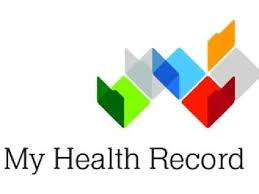The deadline to opt out of My Health Record was extended yesterday to January 31st 2019. The deadline had been set for today – November 15th 2018 – but the Senate approved an extension, after the site crashed when large numbers people tried to opt out before the deadline.
My Health Record has been created on an opt-out basis, meaning that if you do not express your wish not to have a record, a record will automatically be created for you. About 1.15 million people have already opted out online, by telephone and through the mail, 300,000 have opted in, and about 17 million people are expected to be automatically enrolled the deadline passes.
The advantages of a My Health Record
Health Minister Greg Hunt has said such a centralised database was a necessary part of any modern health management system, and says it is arguably the safest system in the world.
Its main advantage is that any registered health provider treating you, who is registered with the Australian Health Practitioner Regulation Agency, can see the record. This includes doctors, pharmacists, physiotherapists, nurses, diagnostic imaging practices, chiropractors, optometrists, dentists and psychologists. While patients can place restrictions online to give only certain people access, these controls can be overridden in any emergency. In an emergency, giving doctors access to medical records may assist them in knowing about your allergies, immunisations and medical history. Essentially, the system is ‘designed to save lives’ according to Federal Health Minister Greg Hunt.
Access also will not be given to employers, despite some fears that potential employees will have their information released without their permission.
The disadvantages of a My Health Record
Since the system was announced, there have been many privacy concerns about who can see the data. The government has proposed legislation that would ensure a patient’s right to permanently delete the record, as well as ensuring that police can only access someone’s medical history with a court order, but this legislation has not yet been passed. There is also debate about the privacy for those aged 14 to 17 and whether their parents should have automatic access. Hobart GP Robert Walker has said he plans on closing his weekly high school clinic which offers mental health support and STI checks for teens, after deciding it was ‘too risky’ under My Health Record.
The issue that has gained the most media attention is the issue of hacking, given that any online record is susceptible to this, regardless of its advanced security system. The Office of the Australian Information Commissioner – the independent regulator of the privacy aspects of the system – recently submitted more than 100 breaches to a Senate inquiry. Also, the director of privacy at Australian Digital Health Agency – the agency behind the My Health Record – quit last month, claiming that the Health Minister Greg Hunt’s office was not taking privacy concerns seriously enough.
Another issue is that not all data is automatically uploaded, despite the aims of the scheme. Two years of data from the Medicare Benefits Schedule, Immunisation Register, Organ Donor Register and Pharmaceutical Benefits Scheme will be automatically uploaded, but otherwise, it is up to doctors to upload the information. Given that most doctors already use their own systems and are often strapped for time, it is questionable whether records will be consistently updated. Moreover, only 86% of GPs are connected to the software that can access My Health.
Ultimately, it is a personal decision for you and your family whether to join the My Health Record or opt out. If you have any queries relating to the issues featured in this article, please do not hesitate to contact us on 02 8917 8700 or fill out the enquiry box and we will get back to you ASAP.

